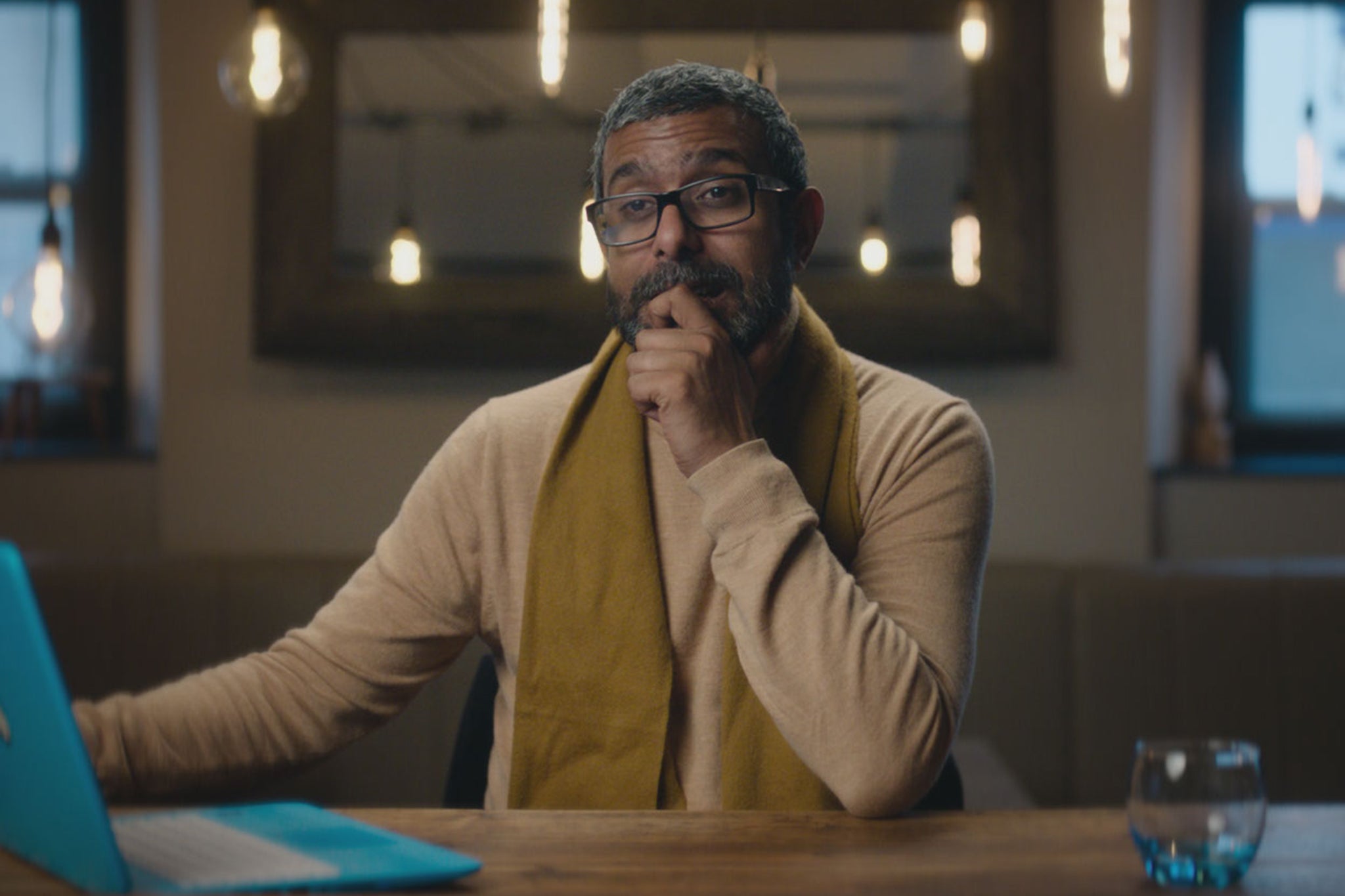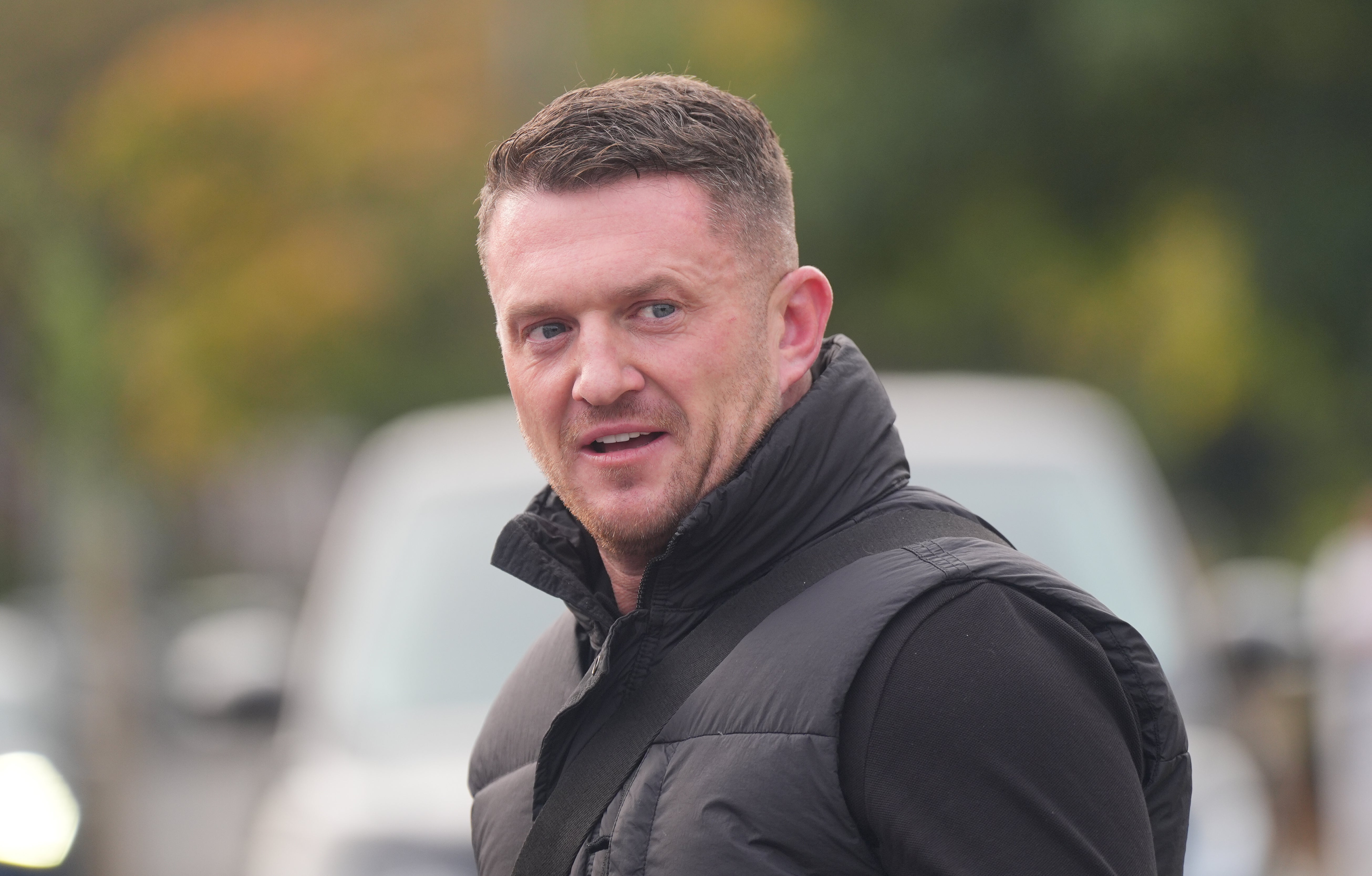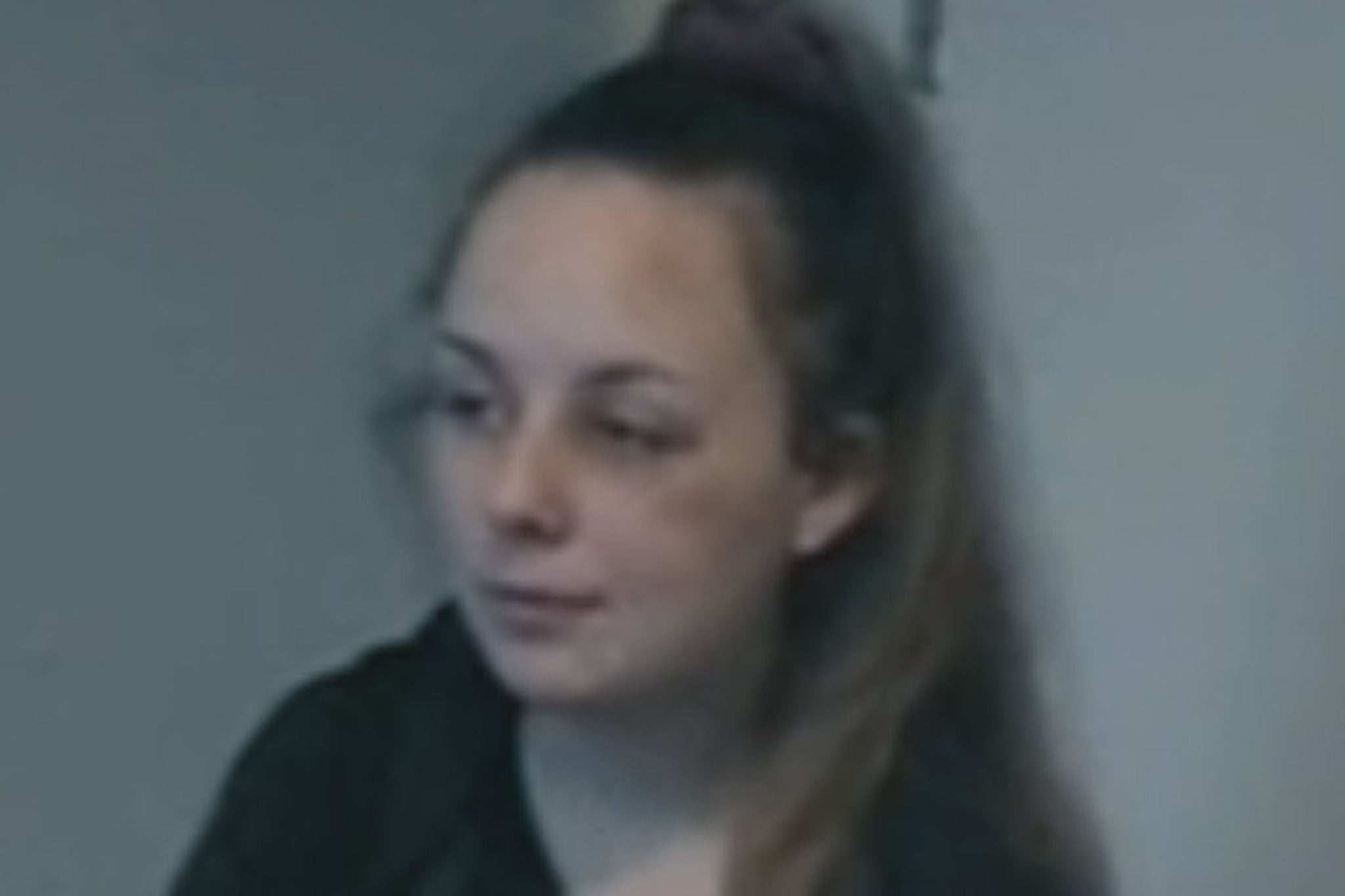How one woman turned a small town’s grooming scandal into a Tommy Robinson-fuelled race war
When a young woman shared her horrific experience at the hands of a grooming gang, it seemed like a simple yet harrowing story of good versus evil. The truth, reports Zoë Beaty, was altogether more complicated – and it shows how easily scandals can be weaponised by the far right when tensions run high


Mo Ramzan is sitting in his living room in Barrow-in-Furness, desperately trying to prove his innocence. Six days ago he was a local ice-cream-truck owner, content with family life. Then he was wrongly named as the leader of a Pakistani sex-grooming gang. Opposite Mo, perched on a maroon red sofa, is Tommy Robinson, the white nationalist, anti-Islam activist and co-founder of the English Defence League (EDL) – the only man Mo thinks can help him to clear his name.
Less than a week before their conversation, Mo’s life was turned on its head by a single Facebook post that spawned a national outcry. On 20 May 2020, a fragile young woman called Eleanor Williams took to social media to share a long, graphic post detailing her horrific experiences at the hands of “men from takeaways ... Mostly Pakistani men” – who she alleged were involved in a sex-grooming operation in the small Cumbrian town.
Williams recounted how she had been continually raped, stripped and beaten, burned, and even had her finger cut off by her perpetrators. The post, which showed the then 20-year-old black-eyed, slashed and bruised, was shared more than 100,000 times; within days, people in Barrow had taken to the streets, calling for justice. More than £22,000 was raised in a crowdfunder to support a private prosecution of her attackers. Her story provoked reactions as far afield as America and Australia, while here in the UK, it quickly stoked and ignited already simmering racial tensions.
Asian men in the vastly white town were vilified, their businesses smeared and attacked. One restaurant owner received phone calls in which he was told his wife would be raped in front of his two young children. Ramzan, an ice-cream-van owner, was named and singled out as the grooming gangmaster, alleged to have passed Williams around groups of men at sex parties so that they could rape and abuse her.
As his name spread across the town – and the rest of the UK – he and his family were also threatened with extreme violence: they expected their house to be petrol-bombed at any given moment.
The locals had made up their minds: this was a tale of good against evil. Williams’s supporters were on the side of righteousness, sticking up for an innocent and vulnerable girl who had been subjected to horrific abuse. They had heard of predatory gangs before. They were outraged that such heinous attacks had visited their town, and that “one of their girls” had fallen victim to them.
Except in this case, none of the claims were true. As the town would soon discover, Williams’s injuries were all self-inflicted; often she hit herself with a hammer to make her eye swell and draw blood from her own flesh. She hacked at her own fingers, her arms and legs, to present “evidence” of her abuse. The entire case was a shocking sham.
Williams was arrested and, following a trial in 2022, was found guilty of nine counts of perverting the course of justice. She was jailed for eight and a half years but, under Labour’s early release programme, she walked free after serving just two years.
In a week when pressure for a new inquiry into grooming gangs operating in the UK climbed to the top of the political agenda, the retelling of Williams’s harrowing case in a new documentary by Channel 4 couldn’t be more timely. In fact, its juxtaposition adeptly highlights the dangers of misinformation epidemics, especially in areas where there are simmering tensions over race, class and power.
Last summer’s race riots, fuelled by social media, showed that these situations can be extremely volatile – and that violence can quickly erupt from under the surface. In Accused: The Fake Grooming Scandal, we are reminded of how dangerous it can be when information travels rapidly via social media, and how fragile the truth is in the age of misinformation. When facts are lost in translation, or when specific groups are maliciously smeared and singled out, the consequences can be catastrophic.
“I’ve rarely come across a story where the toxicity of the debate was as intense and poisonous as this,” says Colin Barr, the executive producer of the documentary. He and his team first began thinking about covering Williams’s case almost immediately after her posts went viral. The importance of the story was evident, and its intrigue was appealing – but as they set about producing the programme, its full complexity was revealed.

“There’s something about social media – there’s something about the subject, about the race element,” continues Barr. “There’s something about the nature of a small town like Barrow. And when all those elements collide, there’s a ferocity to it locally, which I think is quite frightening; certainly frightening for the people involved in it, on all sides. Even Ellie’s family.”
It’s a similar collision of forces that we’re seeing play out this week. Elon Musk’s tirades, aimed at Labour prime minister Keir Starmer and, later, at cabinet minister Jess Phillips, echo the rhetoric Williams harnessed to promote her own agenda five years ago, and have generated a ripple effect. Tory MP Robert Jenrick has already been accused of stoking racial divisions after he referred to “people from alien cultures” during discussions about a potential inquiry into an institutional cover-up in Oldham. Meanwhile, Phillips said that Musk was “endangering [her] life” after he took to X (formerly Twitter) to label her a “rape genocide apologist” and said she should be jailed.
In the Barrow case – though the public were not aware of this – police had been investigating Williams’s claims for more than a year before her Facebook post went viral; what’s more, they weren’t the first false accusations she had made. In 2017, aged 16, she reported to police that a man, “C”, had raped her at a party at his house; in May 2019 she accused Jordan Trengove – a local teenager whose family had lived in Barrow for generations – of assaulting her in March that year, then in May threatening her with a knife, beating her with a shower head and raping her. A week later she made a third false rape allegation against Trengove, who was arrested and held in custody for five weeks.
In the months that followed, Williams would launch an onslaught of lies targeting the Asian community, first accusing local character Mo – or “Rammy”, as he’s known – of grooming her from the age of 12.

She went on to tell police that she’d been trafficked to Blackpool. Police later found that her story didn’t add up: while she alleged that she’d been driven to different locations and forced to have sex, they discovered she’d booked herself a hotel room two days prior, where she stayed for the entire time except for making two visits to local shops to buy sweets. It was all captured on CCTV. After a further (and final) claim, Williams was arrested – and Trengove was finally released.
Trengove struggled to recover – which, oddly enough, is where Tommy Robinson comes into the tale. “[Trengove] rebuilt his life with his girlfriend, whom he was with at the point at which Ellie posted the Facebook post,” Barr explains.
“It meant that he was one of the people whose names got mentioned alongside the Asian men she accused, and he found himself newly targeted as a result of that. He’s helpless. His girlfriend, at an absolute loss, saw Tommy Robinson being interviewed about some of these issues, and contacted him to tell him what was happening in Barrow. Tommy said, ‘OK, I’m coming.’”
Robinson – real name Stephen Yaxley-Lennon – marketed himself as a journalist and met with Trengove, whom he believed. Mo was also convinced that Robinson was the only person who could help him – the only person locals would believe – so invited him into his home to talk face to face. The case had taken over Mo’s life: every day he received threats and abuse; people turned up outside his home. Worried that Robinson would be violent, Mo shaved his head: he wanted to “look like a thug”.
“He is a racist,” Mo tells the documentary makers. “But he is a powerful person. People do listen to Tommy Robinson. I didn’t want to, but I needed to speak to him because people don’t believe the mainstream media, people don’t believe the police.” The far-right Islamophobe sitting on his sofa seemed like his only shot at getting the truth out.
“It’s almost like [Ellie] was pushing at an open door,” says Barr, “because everyone was ready to believe that the police hadn’t done their job, and ready to believe that Asian men in that community had done these things. And when you put both of those things together, it’s a perfect recipe for lies to be believed.”

After the authorities failed to take action to protect vulnerable children being sexually abused and exploited in Rotherham and Telford – and even in neighbouring Blackpool, where Charlene Downes disappeared nearly 22 years ago – the foundations were perfectly laid for Williams’s victimhood as another young, neglected woman. It was a cruel and dangerous lie, which weaponised the very real issue of grooming gangs in the UK and the torture that real victims have endured. And in the context of an upsurge in far-right politics, post-Brexit nationalism and racism, that weapon wove a complicated web, says Barr – where facts are only true when you’re on the same side.
“When it’s your enemy saying the facts, your instant response is, ‘Well, those aren’t the facts,’” he says. “And the enemy could be the police, the media, the far right, women, Islam. You end up in a hole where all you believe are the people that you share experience with – everyone else is the enemy. Once it’s there, there’s almost nothing you can do to stop it, and everything you do makes it worse.”
Williams served two years for her repeated malicious accusations. The court that tried her found insufficient evidence of any psychological affliction that may have driven her to commit her crimes; it’s likely we will never know why she did.
Today she is out of prison, but the destruction she left in her wake means that some of her victims will never feel free. While Robinson purportedly believed Ramzan’s account, the court was shown videos of him attending protests at Hollywood Retail Park in Barrow in May 2020 – his presence was deemed a “deeply unhelpful intervention that will only increase tensions in our community at the worst time possible” in a tweet from Stephen Fell, then-Conservative MP for Barrow.
Since Williams became a cause celebre for far-right extremists many of the Asian men still living in Barrow have continued to receive abuse. Some have lost their businesses and felt forced to leave the town.
And now conditions are being set for the “post-truth era” to further expand. Despite the introduction in 2023 of the Online Safety Act, which “criminalises the spread of false, harmful information online”, this week Mark Zuckerberg announced that Meta will end responsible fact-checking on Facebook and Instagram. A society in which “alternative facts” could quickly become the norm is undoubtedly a terrifying prospect.
“What making this documentary gave me was a sense of just how fragile things were back then – partly because of Covid-19, partly because of the previous grooming scandals. There was an intensity, and cracks started to appear,” says Barr. “If anything, now, I think it’s even more fragile. We’re seeing those cracks appear in other parts of the country, for all sorts of other reasons, and they are all connected.
“There are some very deep-seated issues underpinning it – being marginalised, poverty, disenfranchisement – but, still, there’s a looming sense that there are lots of cracks running just under the surface. And it doesn’t take very long to open them up.”
‘Accused: The Fake Grooming Scandal’ is available to stream on Channel 4 now
Join our commenting forum
Join thought-provoking conversations, follow other Independent readers and see their replies
Comments

Bookmark popover
Removed from bookmarks